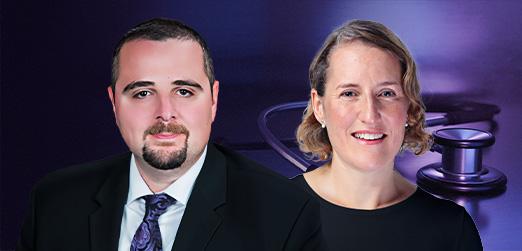- Home
- Hypertrophic Cardiomyopathy in Review: Assessing SCD Risk in HCM & Managing HCM With High Risk SCD
Hypertrophic Cardiomyopathy in Review: Assessing SCD Risk in HCM & Managing HCM With High Risk SCD
- Structural Heart Disease
Available Credit:
- 0.50
Course Published On:
Course Expiry Date:

Release / Expiration Date
November 18, 2022 – November 18, 2023
Method of Participation
This activity will take approximately 30 minutes to complete. To receive credit, participants are required to view the online activity and complete the posttest and evaluation. To receive credit, 75% must be achieved on the posttest. There is no fee to participate in the activity or for the generation of the certificate.
Accreditation Statement
This activity has been planned and implemented in accordance with the accreditation requirements and policies of the Accreditation Council for Continuing Medical Education (ACCME) through the joint providership of the Academy for Continued Healthcare Learning (ACHL) and Radcliffe Medical Education. ACHL is accredited by the ACCME to provide continuing medical education for physicians.
Credit Designation Statement
The Academy for Continued Healthcare Learning designates this enduring material for a maximum of 0.50 AMA PRA Category 1 Credits™. Physicians should claim only the credit commensurate with the extent of their participation in the activity.
Nurse practitioners may participate in this educational activity and earn a certificate of completing as AANP accepts AMA PRA Category 1 Credits™ through its reciprocity agreements.
Support Statement
This activity is supported by an educational grant from Bristol Myers Squibb.
Disclosure
The Academy for Continued Healthcare Learning (ACHL) requires that the faculty participating in an accredited continuing education activity disclose all affiliations or other financial relationships (1) with the manufacturers of any commercial product(s) and/or provider(s) of commercial services discussed in an educational presentation and (2) with any ineligible companies. All relevant financial relationships have been mitigated prior to this activity.
The following financial relationships have been provided:
Advisory board: Pfizer, Sanofi, Cardior, BMS, DinaQor
Consulting: Pfizer, Sanofi, BMS
Speaker: Pfizer, Sanofi, BMS
Discussion of Off-Label, Investigational, or Experimental Drug/Device Use: N/A
Staff and Reviewer Disclosures
ACHL and Radcliffe Medical Education staff members and others involved with the planning, development, and review of the content for this activity have no relevant affiliations or financial relationships to disclose.
Terms & Conditions
The content for this activity was developed independently of the commercial supporter. All materials are included with permission. The opinions expressed are those of the faculty and are not to be construed as those of the publisher or grantor.
This educational activity was planned and produced in accordance with the ACCME Standards for Integrity and Independence in Accredited Continuing Education. Recommendations involving clinical medicine in a continuing medical education (CME) activity must be based on evidence that is accepted within the profession of medicine as adequate justification for their indications and contraindications in the care of patients. All scientific research referred to, reported, or used in CME in support or justification of a patient care recommendation must conform to the generally accepted standards of experimental design, data collection, and analysis.
This CME activity might describe the off-label, investigational, or experimental use of medications that may exceed their FDA-approved labeling. Physicians should consult the current manufacturers’ prescribing information for these products. ACHL requires the speaker to disclose that a product is not labeled for the use under discussion.
Target Audience
- Cardiologists
- Heart Failure Specialists
- Other Allied Healthcare Professionals
Learning Objectives
Upon completion of this activity, participants will be able to:
- Recall risk factors associated with sudden cardiac death (SCD)
- Recall best practice approaches to prevent SCD according to guidelines and expert insight
- Stratify patients likely to benefit from invasive procedures versus pharmacological treatment
Speaker









